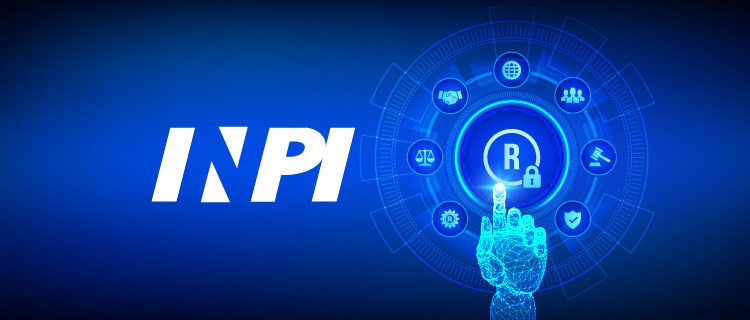Before delving into the theme of this article, it is important to highlight that Brazilian Law demands that a request for trademark be filed with the legally competent institution known as The National Institute of Industrial Property (INPI) in order to be granted a registered trademark.
Thus, the first to file the of trademark application before the Brazilian Patent and Trademark Office – BPTO – is prioritized in their registration in accordance with Article 129 of the Law of Industrial Property – LPI (Law 9.279/96). Reads as follows:
“The property in a mark is acquired by a validly granted registration, in accordance with the provisions of this law, the owner being guaranteed exclusive use thereof throughout the national territory, without prejudice to the provisions of articles 147 and 148 with respect to collective and certification marks.”
It must be noted that the above article is subject to exceptions, among which the one referred to in paragraph one. This paragraph refers to the user of goodwill, who can prove previous use of at least 6 months of an identical or similar mark, to identify identical or similar products/services. In such hypothesis, the bona fide user may claim the priority right, fulfilling some requirements.
“§1 – Any person who in good faith at the date of priority or of the application was using an identical or similar mark for at least 6 (six) months in the country, to distinguish or certify a product or service that is identical, similar or akin, will have preferential right to registration.”
Another exception is covered in Article 126, of LPI, in accordance with the Article 6-BIS from the Paris Union Convention for the Protection of Industrial Property: in cases of marks that are reproductions or imitations of well-known marks in a specific segment, the law ensures the priority of registration to the owner of the mark, if specific requirements are met:
“Marks that are well-known in their field of activity in the terms of article 6 bis (1) of the Paris Convention for the Protection of Industrial Property will enjoy special protection, independently of whether they have been previously filed or registered in Brazil.”
Another exception that we highlight refers to the trade name, provided in article 124 item V of LPI. In this article, the law states the right to trademark registration is guaranteed to the one that holds, as characteristic or differentiating element of its trade name, a sign that is identical or similar to that of a third party, in the same or similar market segment, likely to cause confusion or undue association.
“Article 124 – The following are not registrable as marks: (…)
V – reproductions or imitations of a characteristic or differentiating element of a title of establishment or the name of an undertaking belonging to a third party, which are likely to cause confusion or association with such distinctive signs;”
Objective and subjective requirements are of equal importance for trademark registration. These requirements are: (i) registrability, (ii) distinctiveness of the sign, as well as (iii) legitimacy of the trademark applicant.
Therefore, after a business is legally established, or even before, the ideal scenario is to carry out a trademark availability search. This search is to verify the registrability of a mark and point out any eventual obstacles to its registration, whether they be because of previous registration or infractions prohibited under Article 124 of LPI. Furthermore, the search offers strategies to obtain a registration.
A trademark availability search should be carried out by qualified and highly experienced professionals in the trademark area. This search aims at analyzing all conflicting criteria, by exploiting the different combinations of words, prefixes, suffixes, word roots, visual, graphic, phonetic, ideological, and other clashes.
For example, a mark such as CADYZ, may face potential obstacles to its registration, as such: CADIX, KADIX, CADIS, ADIX, ADIZ, ADYS, CADI, KADHY, and numerous other variations.
Thus, the preliminary step in carrying out the search is essential to a correct and successful trademark application, avoiding loss of resources to the owner and saving time in the outcome. The average time that INPI takes to analyze a trademark application can be from 7 to 10 months, as long as there is no procedural issue.
Further, it is recommended that the trademark application is carried out immediately after the trademark availability search. Thus, avoiding that new applications are made, which could constitute impeditive priorities.
However, a faulty trademark availability search has several consequences. A search that overlooks the parameters of graphic, phonetic, visual and ideological similarity, as well as criteria of market affinity can cause serious risks to a company. Potential risks are a company being forced to stop its undue use of a mark; having its products or goods sequestered; being fined for losses and damages.
Finally, it is important to highlight the benefits of protecting a mark: (i) exclusive use throughout the national territory; (ii) the possibility of suing a third party for a violation of the owner’s trademark; (iii) the qualification of the mark as an intangible asset, capable of aggregating value not only to the product or service, but to the company; (iv) the possibility of new revenue forms through licensing the trademark; and (v) higher public credibility in the business model.


